|
I know it's been a while. This post is mainly for those who follow my Twitter account or are in the official The Outbreak Story Discord server. I haven't been posting much about the game lately, and I haven't been that active on social media in general, and I figured I'd explain what's up and where I've been during all of this time. First of all, I want to say something to those of you who might be worried about the state of the game's development. Please don't be. The game's development is very much ongoing and I have been making progress, but a lot of that is stuff I don't want to show because it would spoil the story. I know what I want the game to be, how I want the plot to go and what I want the ending to be. I am confident that I'll be able to finish the game either before the end of this year, or if not, early next year. I know that people might want something more concrete, like a release date, but I don't like to give people expectations and then potentially letting them down. But why have I been inactive on social media? The short answer? Depression. I have always been open about my struggles with mental health, so this might not come as much of a surprise. More than that, though, I've just been kind of... burnt out on social media (Twitter in particular) at the moment? The whole climate can be... tiring at times. For me, anyways, but a lot of people in online spaces that I hang out in express frustration with being on Twitter and their feelings on the matter are similar to mine, so I know this isn't just me. A lot of people on Twitter (and I know this isn't exclusive to Twitter but I think Twitter is one of the worse platforms in this regard) seem to just have to have an opinion on everything, even if they don't know what they're talking about, just to have an opinion on the matter. And people have to be RIGHT all the time, which is something I find to be rather annoying as someone who would rather try to actually solve the world's problems. At a certain point, it just doesn't feel productive to follow all this discourse. Aside from that, I've also had some IRL issues to deal with. My cat, Casper, disappeared a few weeks ago. He was only gone for a few days and he was fine when I found him, but it was a horrible situation. I didn't sleep at all during the first night. I don't know what I'd do if he died. I mean, it's a risk, since I live in a suburban area and there's a busy road right next to my house. There's a lot of cars. But he's back, and I'm making sure to cherish all the time I get to experience with him! Love you, Casper! That aside, a few of my close online friends have also been dealing with their own mental health issues. I've been giving them emotional support to the best of my ability. I have also been dealing with a particularly frustrating situation in a Discord server where I'm a moderator. A person in that server who several other people had issues with had to be banned after, when confronted about it by the server owner (who is also one of my close friends) he tried to emotionally blackmail the server owner. This person has since been constantly bothering us to unban him, and since that didn't work, he has started to bother third parties about it and trying to get them to bother us about it instead of doing it himself. This has been pretty exhausting to deal with, not just for me, but also the server owner (who already has his own mental health issues) and the other moderator. The whole issue has been going on for more than a month, by the way. Just putting things into perspective here because I don't think the short summary I gave of the situation really conveys what an exhausting experience it has been. So, yeah, plenty of stuff has happened. Moving on from that, here's some gif's! The first gif is of Noah, James, Marie, Alexia and Shelby fighting the Antlion, a powerful boss. It has the ability to regenerate itself, making it hard to do any real damage to it. (check the original tweet here) On to the next gif... After the party manages to deal with the healing factor and damage the boss, it starts shooting out giant lasers. (check the original tweet here) And here's a still image. (check the original tweet here) I have made some graphical upgrades to existing areas as well. Here's the town of Seafort. (check the original tweet here) And, finally, here's some light-hearted dialogue. The party is visiting Alexia's grandmother, who lives in a little cottage in the forest, and Noah is preparing to knock on the door. (check the original tweet here) That's it for now, as far as the progress update goes.
I would love to promise that I'll be updating consistently from now on, but if you're a long-time follower, you probably already know that I'm not good at that. Even putting aside the fact that I struggle with mental health issues, I'm just not that great at sticking to a schedule. I'm trying, really, but improving at this sort of thing takes time. If you've made it this far and are reading this, thanks a lot! Please consider following me on Twitter (@BasMakesGames) or checking out the demo for the game on Itch.io or GameJolt. If you would like to get in touch, become a tester or get notified whenever I post something about the game including progress updates, join the Discord. Greetings, and stay safe! -Bas
0 Comments
I've been thinking about something.
Before we start, I should lay my cards on the table. I'm an atheist. I was raised in a Christian household, but I became an atheist around the age of 16. Perhaps earlier. Don't remember when exactly, but that's beside the point. The point is... sometimes, when I openly say that I'm an atheist... I get these weird looks. The atmosphere becomes cold and tense, things get awkward, and sometimes the conversation just ends altogether. And it makes me wonder... do people think it's somehow rude to be an atheist and express it openly? And do those people have a point? Let's start with an experience that I had not long ago. I won't name names, because I don't want to call out anyone and I'm also currently on good terms with these people. I also want to point out that this matter has already been resolved long before I wrote this. I like these people and the intent here isn't to vaguepost about them. The purpose of this isn't to criticise these people, but to reflect on this conversation, because I think it's a good example of what I'm talking about. Sooo, I was talking with some people online. I think it was 3 people. I don't remember what we were talking about, other than the fact that it wasn't about religion, but one of them said something about their faith in God and the other two chimed in, sharing similar sentiments. And then the conversation became about their personal relationship with God and their religion. And I said that I don't think God is real, and asked a question about their relationship with their deity. And then I was asked to take the conversation somewhere else. Keep in mind, I wasn't trying to argue, or start a big debate, or attack people for their beliefs. I was just stating that I didn't think God was real and asked a question. Just stating an opinion. And this isn't the first time I've experienced this. As I said before, it's a rather common occurrence, one that I've gotten used to. The question is... why? And do the people who respond to me like this have a point? I get that some atheists can be condescending and rude to religious people. I've seen it happen, and it sucks. As much as I think it's good to criticise religious beliefs, and point out that a lot of religious scripture contains some stuff that's really beyond the pale (a lot of God's behavior in the Old Testament being an example) it's important to treat people with compassion. Not all religious people are like the Westboro Baptist Church. As long as they're kind to us and aren't using their God as a justification to treat others badly or deny them equal rights, we should be kind to them and give them the benefit of the doubt. That said, a lot of atheists understand this and do treat religious people with compassion. I do my best to treat other people with kindness. And so do the atheists I'm friends with. Just expressing a lack of belief in God isn't an attack, though. I would be attacking the other person if I said something along the lines of "God doesn't exist. And you're stupid for believing that he does", but I don't. As I said before, I don't like to personally attack other people like that. Anyways... Is it rude to be openly atheist? The short answer: No. The long answer: No, but if it was, it's just as rude for religious people to constantly talk about their religion and expecting me to fine with it. If it's rude for me to state that I don't think God is real, it's just as rude for religious people to pray around me, talk about Jesus dying for my sins, or his blessings and all that stuff. And I don't complain about them doing it. Respecting each other's beliefs goes both ways. Doesn't it? That's all I have to say. If you're still reading, thanks, I appreciate it. And I hope you have a good day. Greetings, -Bas Let me guess what your password is.
Does it have your name in it? Or your age? Or the year you were born? Or is it the name of your favorite band, celebrity or TV show? I know that this topic has been discussed to death and that people who are much smarter than me have already said the things I'm about to say. But I think this is more important than ever, and I think we have to keep having this conversation, especially today, especially in a world where computers and the internet play such a large role in our lives. And especially since, despite all that and despite the fact that this has been discussed so often, the list of the most commonly used passwords still includes such things as "password", "abc123" and "123456". Also, a close friend of mine had their account compromised a while back, due to a scam. That's what compelled me to write about this in the first place. Don't use passwords that are easy to guess, like the ones I mentioned above. Any hacker who knows what they're doing is going to try these passwords out. And if I wanted to log into your account, I would try those out (and maybe try out some slight variations like adding a number at the end) before I'd even bother trying to brute-force my way in. Don't just use a random word from the dictionary. All I would have to do, if I wanted to get into your account, is to use one of those password cracking tools that do this stuff automatically and hook it up to a dictionary. And don't use a short password. It should be at least 10 characters long, preferably longer, anything shorter than that just isn't safe. Also, here's 3 other tips. 1: Use two-factor authentication. This one is quite important and I suggest setting it up as soon as possible if you have a mobile phone and haven't set it up already. If someone tries to log into your account, even if they use the correct password, a notification (which will usually contain some kind of code) will be sent to your phone and you will have to verify that it's actually you who's trying to log into your account. Of course, there are ways that this can be breached, but it's good to have an additional layer of security. I will admit that it took me way too long to get this set up for my main accounts. I mean, it's kind of a pain in the ass sometimes, but you really should get this set up as soon as possible. 2. Don't use the same password for the e-mail address that's connected to your account. This one is also important. If someone wants to steal your account, one of the first things they'll try to do once they've gotten access is to try and change the e-mail address and password that's connected to the account. And if the site or the app that you're using is made by people who know what they're doing, an e-mail will be sent to your e-mail address which you will have to open, and you'll have to click some link or enter some code to verify the changes. The hacker will have to get into your e-mail account. And, since plenty of people use the same password everywhere, the hacker is going to try logging in with the same password that worked for the other account. 3 Don't use the same password in multiple places. I suppose this one is more or less an extension of the previous point. If a hacker has gotten access to one of your accounts, it stands to reason that they're going to try the password that worked for that account to try to get into your other accounts. That's all! If you've made it this far and are reading this, thanks a lot! Greetings, and stay safe! -Bas I swear, this is not an April Fools post! With that said... I know it's been a while since I've shared any progress on The Outbreak Story. The reason for that isn't that no progress is being made - quite a lot of progress has been made over the past month - but that I'm working on a lot of story content. Stuff that I don't want to spoil before the game comes out. I finally added lasers into the game, though. And I'm really happy with it! (check the original tweet here)
That's it for now! If you've made it this far and are reading this, thanks a lot! Please consider following me on Twitter (@BasMakesGames) or checking out the demo for the game on Itch.io or GameJolt. If you would like to get in touch, become a tester or get notified whenever I post something about the game including progress updates, join the Discord. Greetings, and stay safe! -Bas Trigger warning: harassment
This one's been a long time coming. If there's one thing I've been banging on about a lot recently, it's idol worship. Or hero worship, or putting people (or corporations) on a pedestal, or however you want to call it. The idea that some people, some companies, just can do no wrong. That some people, some companies, get put on this pedestal where even the slightest criticism is not welcome. As someone who routinely criticises certain companies, or the game industry as a whole, this is something I'm intimately familiar with and it's exhausting to deal with. I will be using examples from gaming spaces for the most part, because that's where I spend most of my time and where I have first-hand experience with this kind of behavior. Of course, this isn't JUST confined to gaming spaces, I would argue that it's a big problem in our culture and something that a lot of people engage in, consciously or not. And I want to address this, hoping that this sparks some kind of meaningful discussion. Let's begin. I want to start by clarifying what I mean when talking about idol worship. I do not consider it harmful to be passionate about something. That's good! By all means, be passionate about the things you like, I'm passionate about making video games. The problem is this kind of fan culture where some people, some companies, some products, whatever, are held up as being perfect. Put on a pedestal. And when any criticism, no matter how mild, is voiced, it is met with backlash ranging from things like snide comments to outright harassment to actual death threats, doxxing and assault. Nothing is perfect, no person, no corporation is beyond reproach, and it's time that we (as a figure of speech) kill our idols and stop putting things on pedestals. Passion is good, blind adoration and deification is not. The thing that made me want to write this blog post is the reaction to the highly anticipated game called Cyberpunk 2077, both before and after its release. The developer of this game, CD Projekt Red, is one of those companies that have been put on a pedestal for years. It was a critical darling, with many gamers fawning over them and excusing all of the horrible worker abuse at the company (which was known for years) because this was the good company, right? The company that cared about the gamers! The company that made The Witcher 3, which we all know is a masterpiece, right? The people worshipping CD Projekt Red had decided that Cyberpunk 2077 was perfect before the game was even out. And when the early reviews started coming out, any review that didn't validate their hopes that the game (which they hadn't even played!) was perfect just wasn't acceptable. Hell, not even actual facts were acceptable. A reviewer who reported that the game gave her a seizure was targeted by the loyal followers of the church of CD Projekt Red. She was subjected to harassment, which included emails that contained material designed to give her more seizures. The corporate loyalists spouted conspiratorial nonsense as well, claiming that there was an "agenda against CD Projekt Red" and that the press had it out for the game, despite a lot of the reviews praising the game, because remember... just praising the game isn't enough. Anything other than uncritical, unconditional, universal praise is not acceptable. The job of reviewers, in the minds of these overzealous fans, is to offer validation to the fans and to give uncritical 10/10 scores. (also, just saying... To all the people who participated in this harassment or defend it; go fuck yourself.) It's not just CD Projekt Red that's put on this kind of pedestal, either. Nintendo fans are known for similar behavior. I still remember the reaction to Jim Sterling's 7/10 score for Breath of the Wild, where a bunch of the fans flipped out at them for the score and for their criticism of things like the game's weapon durability system, and because their score apparently took the game's Metacritic score down or whatever. These fans took it so badly that they took down Jim Sterling's website with a distributed denial of service attack, because that's obviously the mature thing to do in that situation. People also flipped out over a Grand Theft Auto V review that gave the game a 9/10 and was almost completely positive, because of one small paragraph mentioning how she thought the game was questionable in its attitude towards women. Didn't matter that the review was mostly positive otherwise and gave an incredibly high score, it had one small bit of criticism, and that was just going too far. I also want to highlight the reaction to Jim Sterling's No Man's Sky review, where fans of the game had a real normal one and took down Jim's site again. I can't, of course, not mention that time Zelda fans completely lost it over GameSpot's Twilight Princess review, which gave the game an 8.8/10 score. The reactions were beyond parody. I am critical of a lot of the business practices of these companies, such as the inclusion of "loot box" mechanics (which are de-facto gambling mechanics) in a lot of games and the constant worker exploitation that these companies engage in. This kind of criticism gets cheered on when it's directed at the likes of Electronic Arts or Activision, which are companies that a lot of people already dislike, but when it's a company that people like, the same people who criticise EA, Activision or Ubisoft (whose HR department and leadership has spent years covering for sexual predators. But bring that up, and you're shouted down by fans who want to enjoy the latest Assassin's Creed game) for these things suddenly make an exception when the company doing it is a company that they have decided is "one of the good ones". You see, it's different when CD Projekt Red demands that its workers work overtime! After all, they're the good guys, so they're right by definition. I have friends who had overzealous Nintendo fans coming after them because they dare to criticise the company for some of their business practices, or because they had unpopular opinions about some of the Super Mario games. I know at least one friend who has had some very bad experiences with Steam fans because he is critical of the platform and the company running it. I am reminded a lot of soccer fans. More specifically, the soccer hooligans who tend to flip out and riot whenever the team they're loyalists for loses a game. This is cult behavior. I swear. I'm not drawing these parallels to religious fundamentalism just to be edgy. I am serious. I genuinely think this is cult behavior and I think it's worth looking at it through that lens. No dissent is allowed. No criticism. Don't think, don't criticise these companies, don't even just say that a game is good. "Good" or "great" isn't enough. A score that isn't a 9/10 or a 10/10 means that you actually secretly think that the game is bad, at least in these people's imagination. Nothing except unconditional praise is acceptable, and this is enforced through harassment, threats of violence and acts of violence against those who don't fall in line and offer these people the validation they crave. And if you do offer criticism, it can't be valid, because, remember, these companies can do no wrong. No, it means that you have an agenda, you're trying to destroy their favorite company or you're just offended or whatever. Those who express ideas that go against the beliefs of the in-group are shunned, misrepresented and demonised. It's pure dogmatism. Those who are fans of these games but don't agree 100% with these overzealous fans? Well, those were never real fans to begin with, right? This stuff is why I keep drawing parallels to religious fundamentalism. Again. This is cult behavior. Also, I know that some people will scream "not all Nintendo fans", "not all CD Projekt Red fans" or "not all soccer fans" regardless of what I say, and these people probably haven't even read past the first few sentences of this blog post. But for those who are engaging with this in good faith and are worried that I'm lumping them in with the kinds of people I've been banging on about, I want to make it as clear as possible that this isn't my intent. I am only pointing fingers at the people who actually act and think like the people I described above. Not the people who like these things and are genuinely nice people, and a lot of them are nice people. For what it's worth, I grew up with Nintendo games and still like them. So why is this stuff happening? Like with a lot of things, I don't think there is a clear-cut, definitive, black and white answer. I think there are several factors that contribute to it, though. For starters, a lot of these companies have spent years, if not decades, pandering to their fans and conditioning them to be loyal to the brand. After all, from a business standpoint, a loyal customer who keeps buying your products and defends them against criticism is just good for business. This is, of course, not at all exclusive to the game industry. Comic book publishers have done the same thing, and both Marvel and DC Comics have legions of corporate loyalists willing to go to bat for them. I also think that the concept of a parasocial relationship plays a role in this. To summarise, this is when fans develop a one-sided relationship with a public figure, a corporation or some other entity and do not realise that this relationship is one-sided. For those who aren't familiar with this kind of academic language, just think of Justin Bieber fans. (at least, the obsessive ones.) The fan believes that they have an intimate connection with their idol, but the idol doesn't reciprocate, and most of the time, doesn't even know that the fan exists. It is the illusion of a friendship with a complete stranger. But, to the person experiencing this parasocial relationship, it feels like a real friendship. So when someone criticises their idol, it feels like an attack on one of their friends. Of course, a lot of companies, as well as public figures like celebrities, cultivate this kind of relationship in their fans in order to exploit it for financial gain. I recommend taking a closer look at how a lot of celebrities refer to their fans with terms like "family" or "gang", suggesting an exclusive in-group that the fans are part of. CD Projekt Red constantly refers to their fans as "gamers". Also, have you ever worked at a job where you were roped into team-building exercises and you were told that you're "part of the family" or that "we're all in this together, we're all pals" or something like that? This kind of language, whether intentional or not, serves to obfuscate the truth about what's actually going on. There is no family, no gang, and you're not all in this together. You are a consumer. An employee. An asset. That's the truth of the matter. I do want to point out that CD Projekt Red has spent years hyping up Cyberpunk 2077 before its release. And this is a common thing in the mainstream game industry, with No Man's Sky being another well-known example of this. There is almost certainly an element of sunk cost fallacy to this, where people get more and more emotionally invested in a thing because they've already spent so much time waiting for it, so it has to be worth it. And with that comes more defensiveness, since being confronted with information that suggests that it might not be worth it leads to cognitive dissonance. I also think that, as cynical as I'm sure this may sound, some of these people just like to harass people because it makes them feel big and powerful. Maybe they don't feel in control of their lives, they have a shitty job that they hate or just had a bad breakup, and they engage in this sort of behavior because it makes them feel like they're in control, and possibly gives them an outlet for their anger. Those people probably need some form of therapy and, honestly, I do not know how to help those people. I'm not a therapist and reaching out to these people is outside the scope of my capabilities. Lastly, I think that a lot of people just take their passion to unhealthy extremes. As I said before, passion is good, but it can go too far and become an obsession. I think that for a lot of the people I've been talking about, the object of their passion has become entangled with their identity. It has become part of their personal identity, and as such, criticising a game like Cyberpunk 2077 gets taken as an attack on an aspect of their identity. And when we feel personally attacked, we get defensive, we lash out, regardless of whether the attack is real or imaginary. And, again, companies are absolutely willing to exploit this. Remember, it's not about you, it's about the bottom line, and if they can manipulate you into becoming a corporate loyalist who will buy all their products and go to bat for them, that only serves their interests. As a society, I think we need to change the way we look at companies, at celebrities, at artists and what not. We need to stop deifying people and putting them on pedestals. It is time that we stop creating idols and heroes, and that we see these idols for what they are: human. With all of the flaws and imperfections that entails. No one is perfect, no one is above criticism, and no one should be put on a pedestal and treated like a god. We need to be aware of how we're conditioned to look up to certain people or companies, so that we can resist this kind of conditioning and instead form more healthy ways at looking at the world and our fellow human beings. It is time to knock these idols, these heroes, these corporations off of their pedestals and see them for what they are: as flawed and fallible as everyone else. It is time to engage with the things we're passionate about in a better way. It is time to kill our idols. That's all I have to say. If you're still reading, thanks, I appreciate it. And I hope you have a good day. Greetings, -Bas |
authorI am Bas de Groot, a starting indie developer. This blog consists of me rambling on about game development, stuff I like and issues that I care about. Archives
October 2023
Categories
All
|
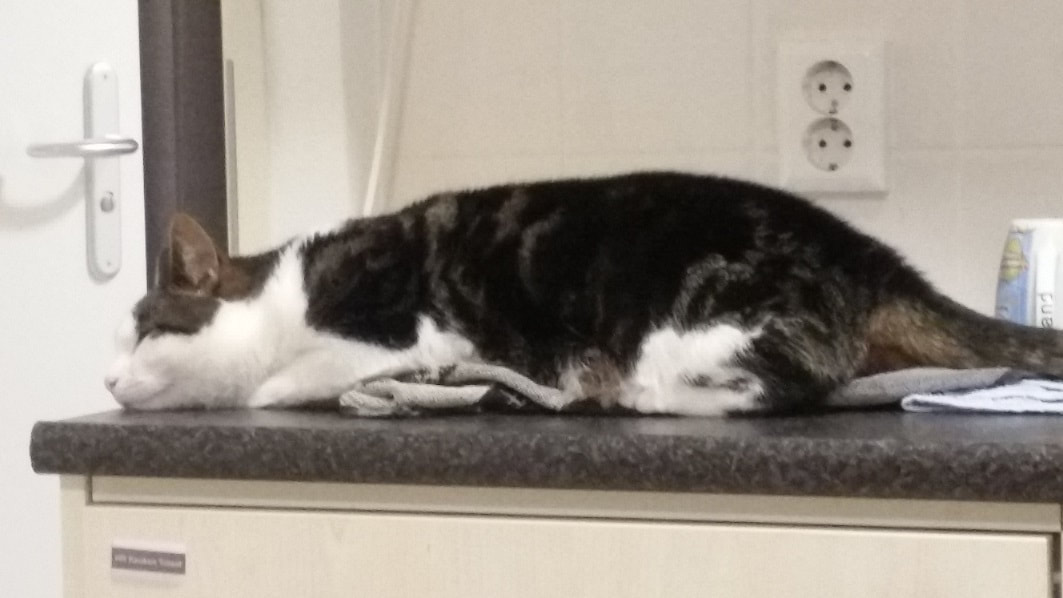
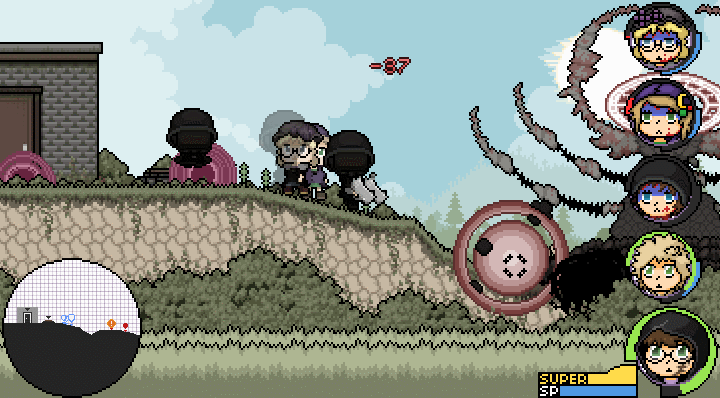
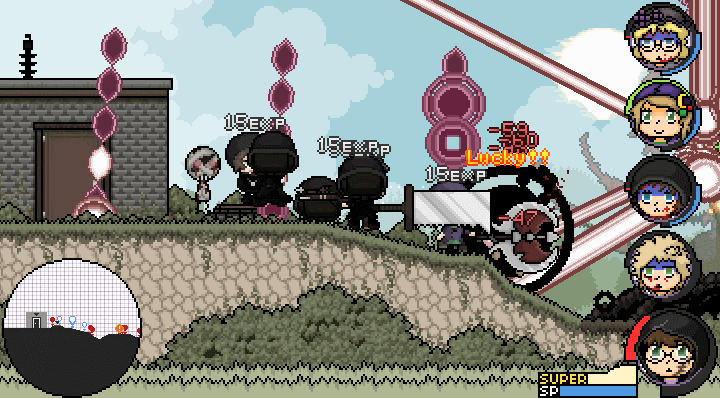
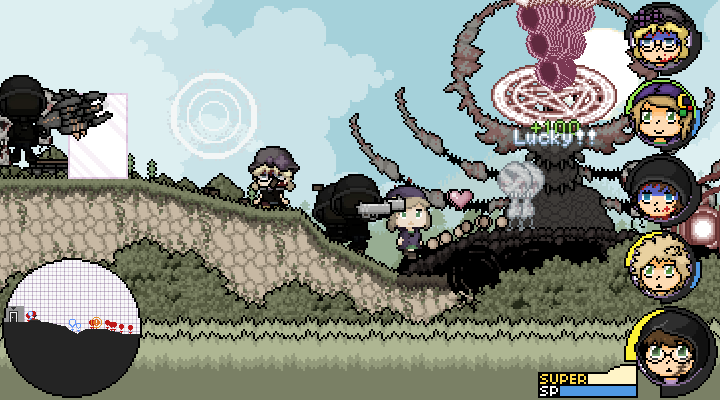
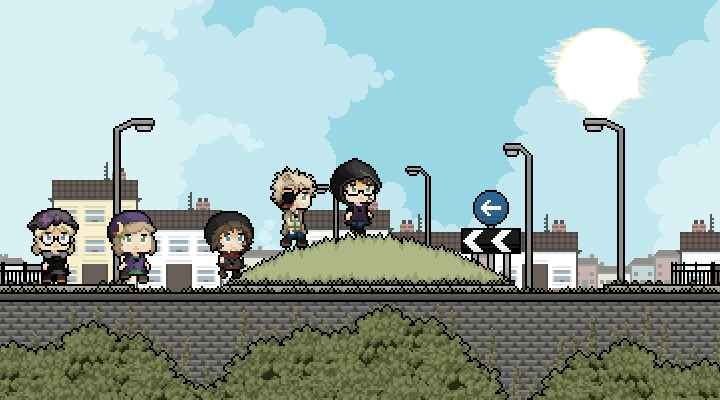
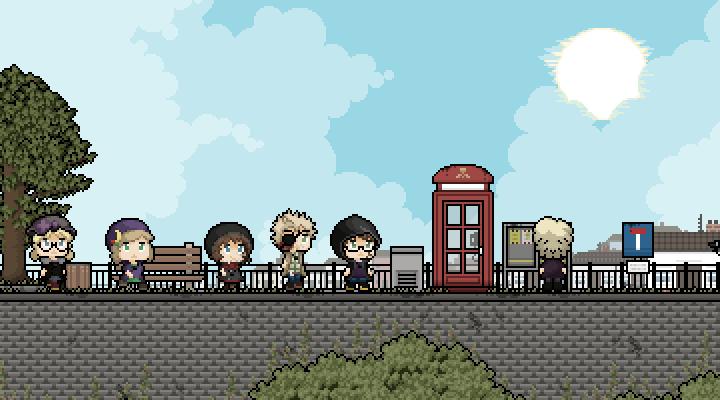
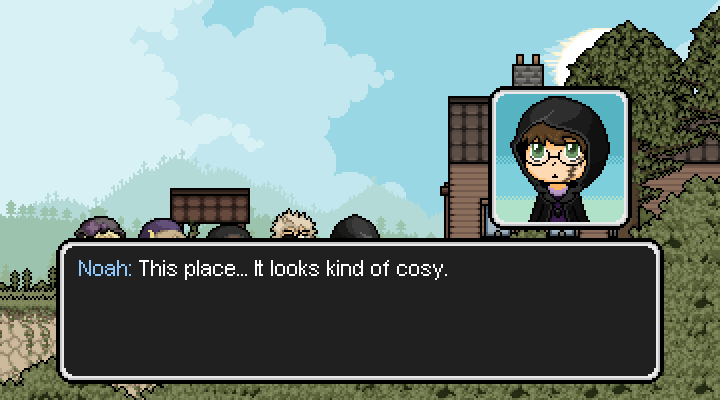
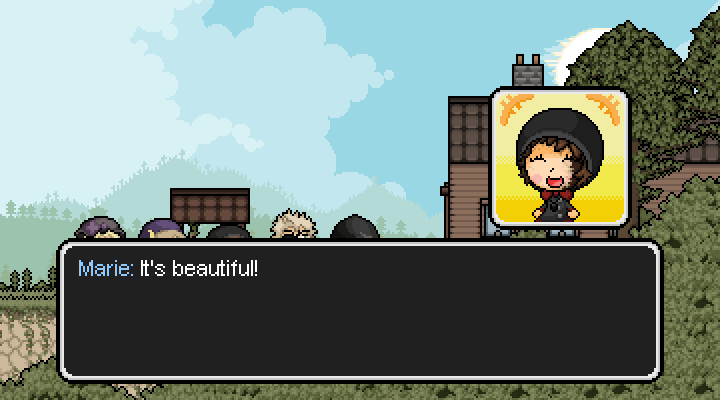
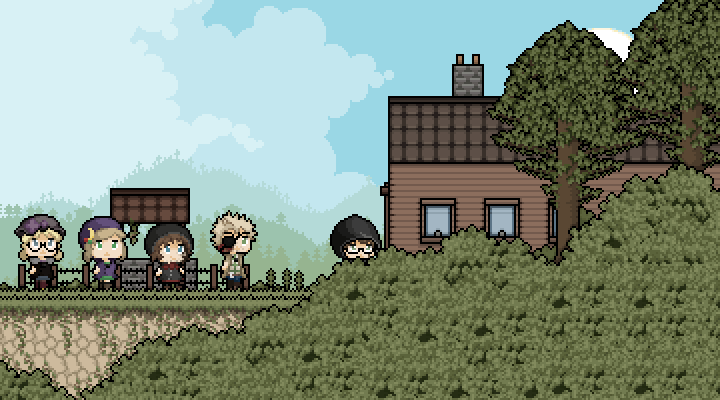
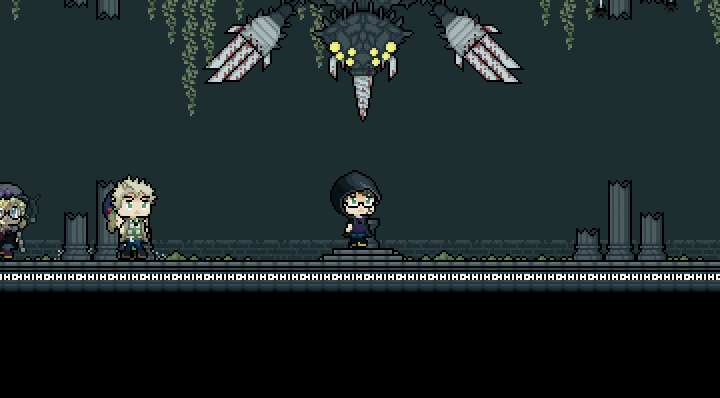
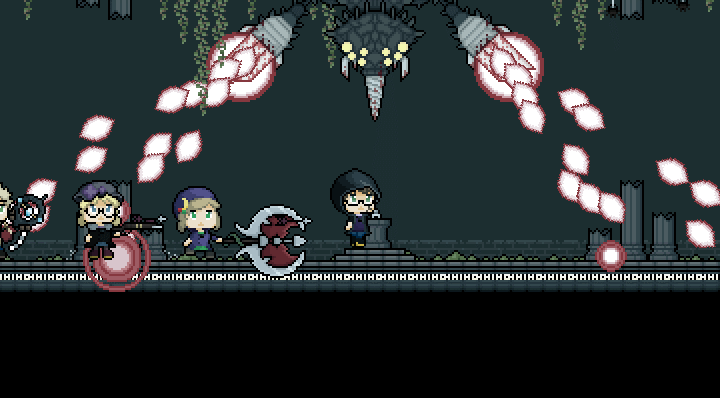
 RSS Feed
RSS Feed